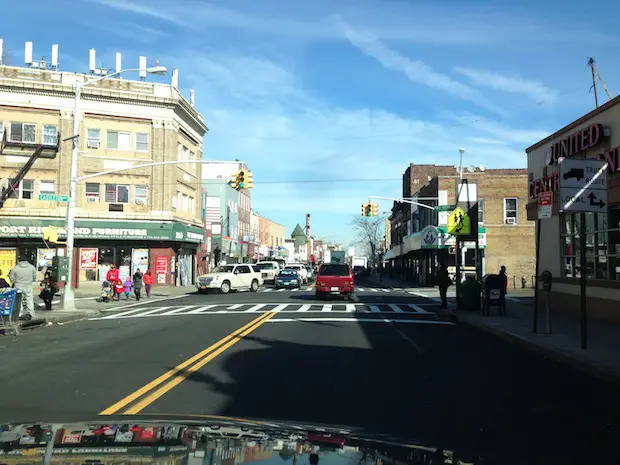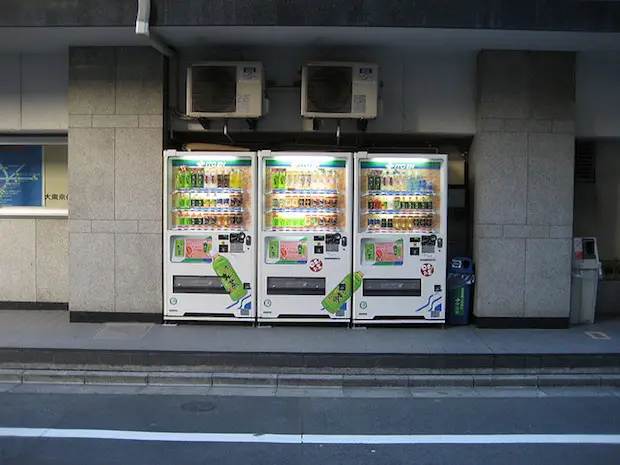Progressive policy makers have a creativity problem. It’s not that they’re stuck in an unimaginative funk where new ideas are simply recycled old ones that include some sort of social media strategy. Rather, it’s the theory that every policy suggestion has to be revolutionary or novel, backed up by data that was previously unavailable or unremarkable, and implemented by way of buzzwords and viral marketing. Basics aren’t viable anymore, which is probably why there’s such an issue getting even basic movement on pressing issues.
Transportation policy, for all its swelling influence over the past decade, might be the best example of those doldrums of creativity. Now to be fair, most of the good people who are trying to strike a better balance between pedestrians and cars on roads in the United States (the scale is tipped almost uniformly towards the latter, of course) understand that keeping it simple works best.
Federal gasoline excise tax has been stuck at $0.184 per gallon since 1993, a charge that has lost 38% of its purchasing power in the last two decades, according to shifts in the consumer price index. Essentially, the gas tax has stagnated at levels that render its main beneficiary—the Highway Trust Fund or HTF—toothless and ineffective. We see the results in our ruptures interstate system and our crumbling bridges. Most reasonable people admit that we need to replenish the trust fund at a better clip, but there’s significant disagreement about how we do it.
And that’s how we get to the navel gazing of the Vehicle Miles Traveled (VMT) fee, where people are taxed based on how many miles they’ve travelled.
Listen, VMT charges are not on the same level of stupidity as Gov. Bob McDonnell’s proposed elimination of the state gasoline tax in exchange for an increased sales tax, a large chunk of which would be dedicated to infrastructure projects. That prospect is insane, not only for its regressive financial tack but also for the conceptual decoupling of driving and its associated user fee, a combination that is an ostensible pillar of American democracy. Instituting a VMT charge, however, is insane politically, financially, and organizationally. Maybe, as we’ve seen in continental Europe, there is an opportunity on the commercial side of the equation for a true user fee but unless there is a sea change in how we would potentially collect information on a given citizen’s driving record then the VMT charge is dead on the asphalt.
But something needs to change. With increased fuel efficiencies, what you pay for at the pump is lasting a lot longer which is, well, a good thing for you but a bad thing for the government since they depend on per gallon sales to keep the HTF afloat. This is the same slow decoupling we’ve seen with general energy costs over the last few decades: when you become more efficient, user fees get less and less accurate. Combine that with inflation eroding the value of a minor gasoline tax and you get our current transportation-related fiscal climate.
There’s a pretty simple solution here, but it didn’t gain any traction or heft until the outgoing executive director of the American Association of State Highway and Transport Officials (AASHTO) brought it up in a speech last month: a gas sales tax. It might seem like splitting hairs—charging by the gallon or charging by the dollar—but the switch in units might save the HTF without affecting much else. Here’s an example:
A 2013 Toyota Prius has an 11.9 gallon fuel tank. The Hess station near my apartment in Brooklyn is charging $3.85 for a gallon of regular unleaded which means you’ll drop $48.82 on a fill up from empty to full. The Federal government’s cut: $2.19. Let’s say that instead of charging per gallon, we treat gas like any other commodity and slap New York City’s 8.875% sales tax on the final price. The Federal government’s new take: $4.34. You’re paying an extra $2 when you fill up (but you’re driving a 2013 Prius so what’s $2 to a rich guy?) and the HTF is essentially doubling its current tax intake. No need for a new tax infrastructure, no messy political discourse on the right to privacy, only the indignation of people who don’t want to pay taxes in the first place.
I’ll admit that there are potential issues with the installation of a gasoline sales tax, most notably the potential effects of price fluctuations and specifically the prospect of price crashes like we saw during Q4 of 2008 and Q1 of 2009 when prices fell to an average of $1.82 per gallon. Price events like this are aberrations—the average price of gasoline since 2005 is $2.86, and the two-year mean is $3.52 (all stats from EIA), hardly indicative of any general downward trajectory. (Plus we might be running out of oil anyway which means that shit is about to get expensive.) Governments deal with shortfalls in revenues constantly, and I’d guess that whomever the next United States Department of Transport Secretary ends up being would rather have a buffer against inflation rather than price crashes.
There’s no doubt that VMT charges will continue to receive most of the press in the small corner of the internet that is transportation blogging; it has the requisite combination of novelty and tech potential that is as in vogue as you can get in planning. But policy makers are sacrificing pragmatism for trends and mistaking newness for innovation. In the end the Highway Trust Fund simply needs more money to stay viable (don’t forget: this affects transit as well) and by letting VMT charges dominate the conversation we’re ignoring the solution that’s been there all along.
Theodore Brown is a transportation consultant based in Brooklyn, New York.
Photo: futureatlas.com


